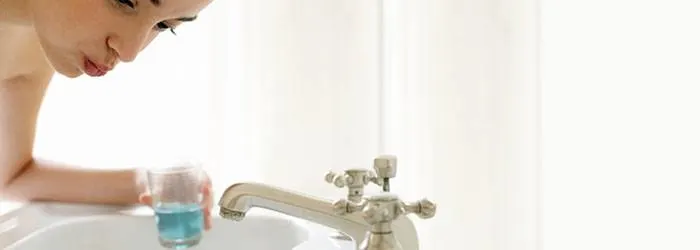
Mouthwashes are meant to be spit out, not swallowed. Find out what happens if you swallow mouthwash.
What Happens After Swallowing Mouthwash
If you accidently swallowed a small amount of mouthwash, there may be no need to panic. Often, swallowing just a little bit of mouthwash doesn’t cause any symptoms at all or you might get an upset stomach.
If you swallowed a larger amount of mouthwash, make sure to call your healthcare professional or a poison control center.
How to Avoid Swallowing Mouthwash
If you, or a child, accidentally swallow a small amount of fluoride mouthwash (or any other type), there's no reason to panic, but do take care to avoid swallowing mouthwash again by taking some of these steps:
Supervise Children - Don't let children use mouthwash unsupervised. It has been recommended that children between the age of 6 and 12 need to be supervised when they use a mouthwash to prevent them from swallowing it. Be sure they spit the mouthwash. Many companies use child-resistant caps to help you out. Children younger than 6 years may have trouble controlling the swallowing reflex, so mouthwash is not recommended for young children.
Pay Attention - Don't let family members distract you when you're performing your oral care routine; distraction might make you accidentally swallow the mouthwash.
Check the label - If you swallow mouthwash check the label to see which of these potentially poisonous products the mouthwash contains: fluoride or ethanol. Severe symptoms of a mouthwash overdose related to these ingredients may include dizziness, drowsiness, trouble breathing, or, in serious cases, convulsions or a coma. In severe cases of swallowing mouthwash, head for the emergency room, and bring the mouthwash bottle with you if possible.
Related Articles
Sign Up
for expert advice and exclusive offers





